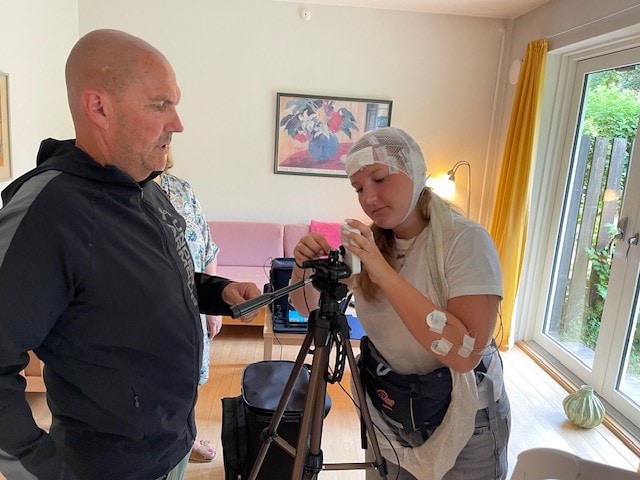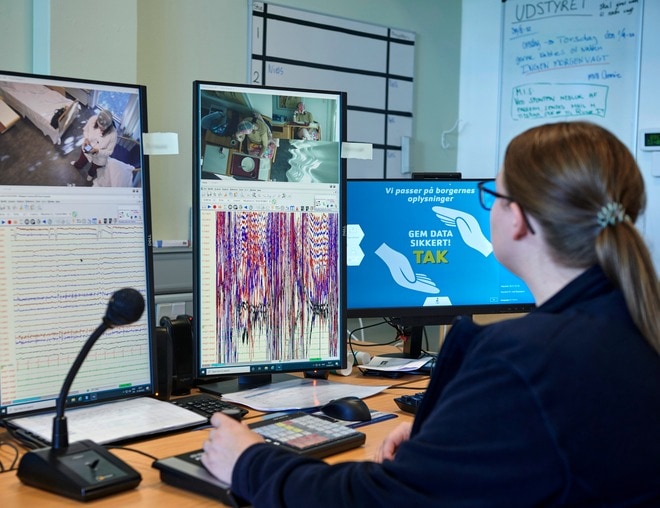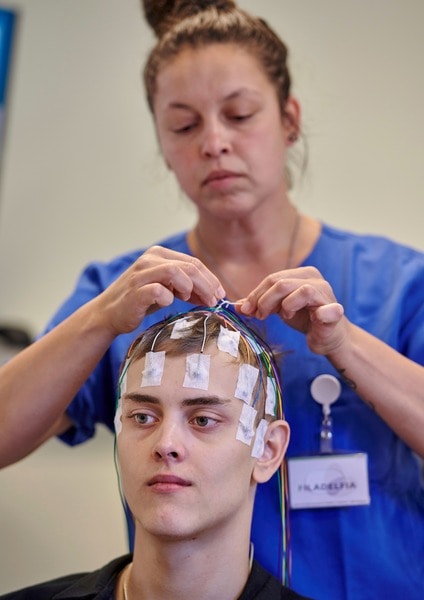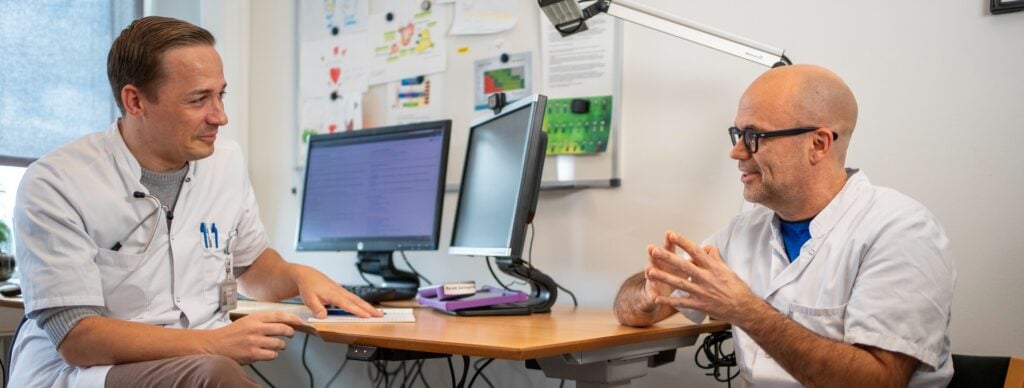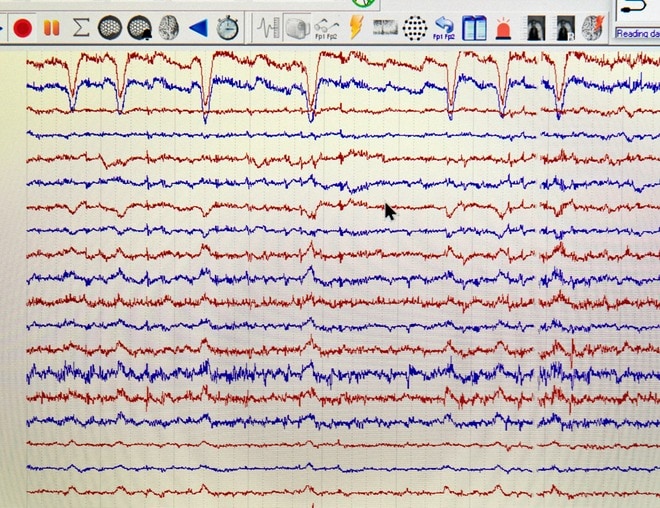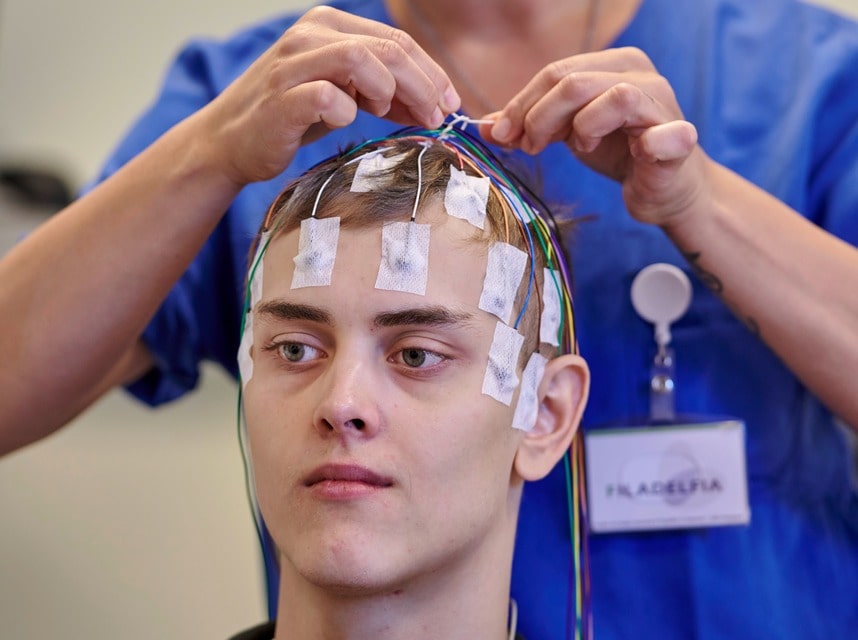
Diagnosis
Epilepsy in children and adults
Filadelfia is Denmark’s specialized Epilepsy Hospital, providing diagnosis at the highest international level. It is important to get an accurate diagnosis.

Diagnosis
Preliminary Examination and EEG
As a new patient, you will be called in for a preliminary examination and EEG.
Both children and adults undergo preliminary examinations at either the ‘Department for Children with Epilepsy’ or the ‘Department for Adults with Epilepsy’. An EEG is an examination that records the brain’s electrical activity. EEG takes place in Filadelfia’s EMU at the Neurophysiology Clinic.
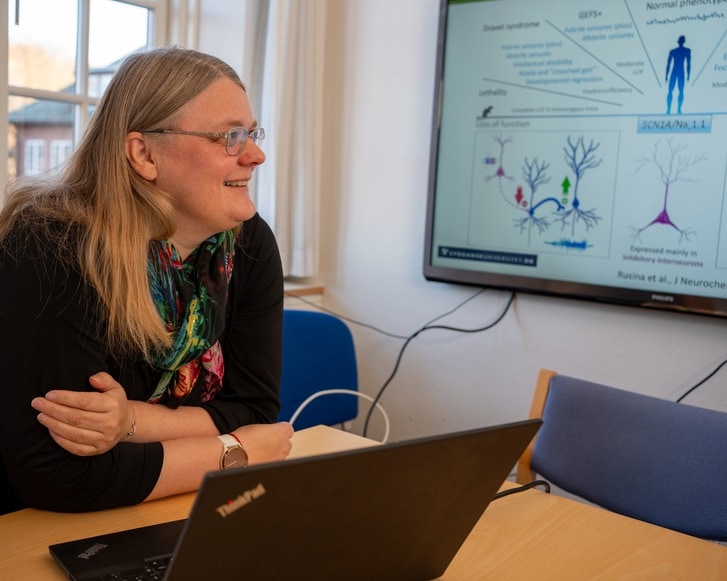
Diagnosis
Epilepsy Genetics and Personalized Medicine
We map the genes of 400 new patients each year
It is now possible to test the entire genome or parts of it for potential genetic causes of epilepsy. Sometimes, the genetic change and its physiological consequences can explain how the body will react to medication. This allows doctors to tailor medical treatment accordingly. Personalized medicine is constantly evolving, and the Epilepsy Hospital increasingly uses it. The Department of Epilepsy Genetics and Personalized Medicine offers services for both children and adults.
Diagnosis
General Information about Epilepsy
It can be very important to get a diagnosis and thus an explanation of why you or your loved one has epilepsy. We have gathered answers to some questions here.
Diagnosis
The Epilepsy Hospital Filadelfia is nationwide
We tailor our diagnostic services depending on whether the patient is a child, an adolescent, or an adult. We also have a special section for adult patients with epilepsy and a disability, a long-term section, and a section for adults diagnosed with PNES.

Diagnosis
Contact us
Visby Allé 5
4293 Dianalund
Phone: 5826 4200
Email: epilepsihospitalet@filadelfia.dk
Neurophysiology Clinic
Phone: 5827 1190
Email: fil-neurofys@filadelfia.dk

